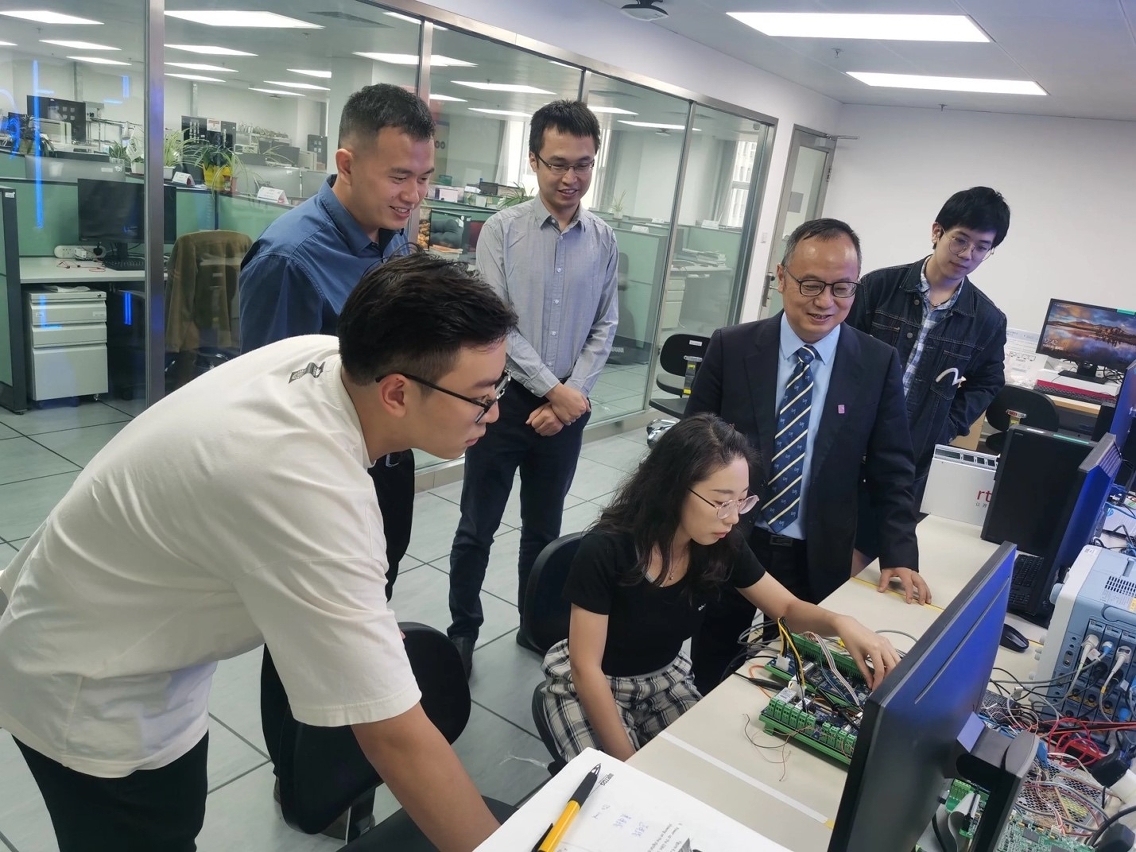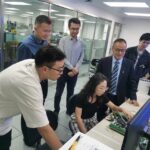 Yonghua Song (2nd from right)
Yonghua Song (2nd from right)
The Celebration of the National Science and Technology Workers’ Day and National Innovation Excellence Award Ceremony, co-organised by the Ministry of Human Resources and Social Security, the China Association for Science and Technology, the Ministry of Science and Technology, and the State-owned Assets Supervision and Administration Commission of the State Council, was held in Beijing today (30 May). At the event, Yonghua Song, rector of the University of Macau (UM), was honoured with the Third National Innovation Excellence Award in recognition of his outstanding contribution to science and technology and social services. He is also the only scientist from Macao to receive the award this year.
Song has played an active role in driving the development of innovation in the Macao SAR and has made remarkable contributions to talent development, science popularisation, decision-making consultation, opening up and collaboration, technological innovation, and commercialisation of research results. Under his leadership, significant reforms have been implemented in the whole-person education system of UM’s residential colleges. He also spearheaded the establishment of the first national science education base in Macao, as well as the training of patriotic and innovative talent. Song has long served as an advisor to the Macao SAR government’s Science and Technology Committee, leading several major science and technology decision-making projects and contributing to Macao’s smart city development. His advocacy efforts include the establishment of the China-Portuguese Speaking Countries Ocean Research Alliance and other science and technology alliances, which helps promote international cooperation in science and technology. In addition, Song led the establishment of the State Key Laboratory of Internet of Things for Smart City, and oversaw the establishment of Macao’s first industry-academia demonstration base in the Guangdong-Hong Kong-Macao Greater Bay Area. He also undertook Macao’s first key research and development project in the energy sector, facilitating the integration of Macao’s technological innovation into national development. Song has received awards such as a second prize of the State Scientific and Technological Progress Award, the prize for Scientific and Technological Progress from the Ho Leung Ho Lee Foundation, and the Guanghua Engineering Science and Technology Award.
The National Innovation Excellence Award was jointly established in 2017 by the Ministry of Human Resources and Social Security, the China Association for Science and Technology, the Ministry of Science and Technology, and the State-owned Assets Supervision and Administration Commission of the State Council. The award is presented every three years to acknowledge collectives and individuals who have made outstanding contributions in areas such as fundamental research and cutting-edge exploration, major equipment and engineering breakthroughs, achievements in research results transfer and innovation and entrepreneurship, and social services. The National Innovation Excellence Award is another major science and technology award in China, following the National Natural Science Award, the National Technology Invention Award, and the State Scientific and Technological Progress Award. It is an important component of the national science and technology award system, and serves as an organic link between the award and major talent programmes in the country. It is a prominent accolade in the field of science and technology, second only to the Highest Science and Technology Award.


